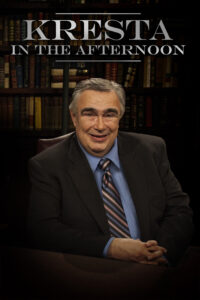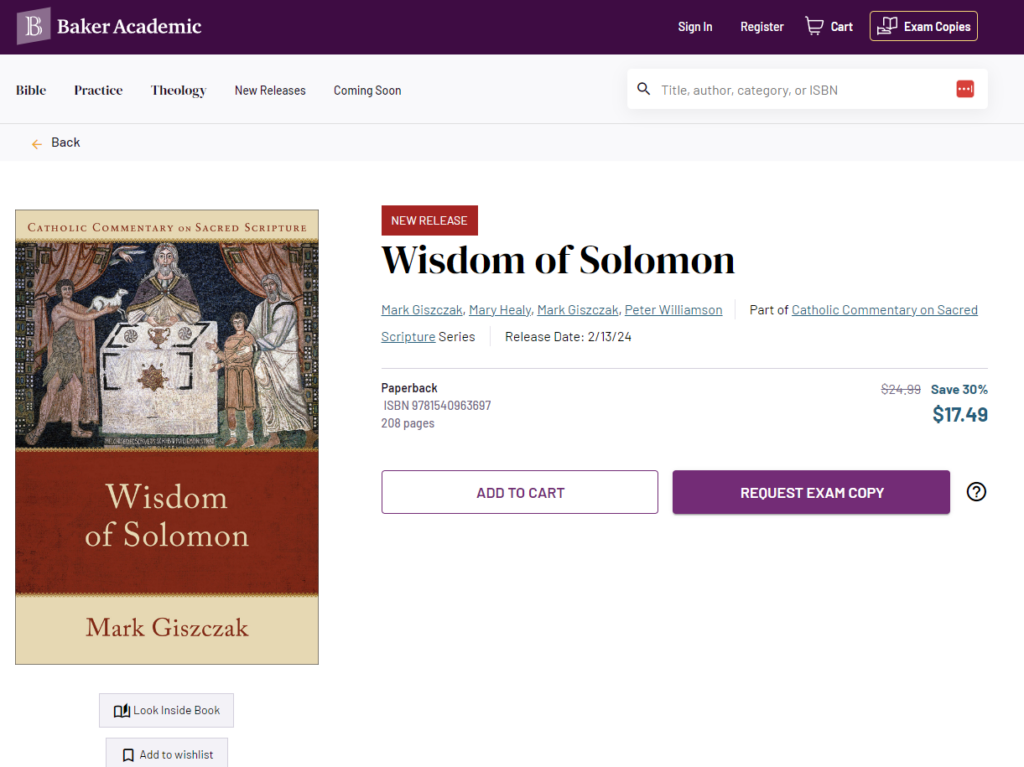Sometimes Bible translators go too far. They get a little too creative and they end up making strange sounding phrases in the target language. I have to believe that that is what happened with this weird phrase in the Book of Wisdom that the NABRE renders as “the witchery of paltry things” (Wisdom 4:12). What the heck is that?
Survey of Translations
Before we go back to the Greek, let’s survey some other translations of the phrase:
- “the fascination of wickedness” (RSV, ESV, NRSV)
- “the witchery of evil” (Winston AB)
- “the bewitching of vanity” (Douay-Rheims)
- “the fascination of evil” (New Jerusalem)
- “the bewitching of naughtiness” (KJV, Brenton)
- “the witchery of paltry things” (NABRE)
- “la fascination de la frivolité”
Take a Look at the Greek
The Book of Wisdom was written in Greek, so that’s where we should start.
So what do these words mean? “Baskania” means something like “envy” (BDAG) or “malign influence, witchcraft, evil eye, envy” (Lust). It’s a weird word from a different cultural context. Looking at the whole verse in context might help us understand what the author is trying to convey:
He was caught up lest evil change his understanding or guile deceive his soul. For the fascination of wickedness obscures what is good, and roving desire perverts the innocent mind. (Wis 4:11-12 RSV)
The author is talking about Enoch, who was so righteous that he was zapped up to the heavenly realm (Gen 5:21-24). So “baskania” is about temptation, particularly about the power of worthless evil things to cloud moral judgment and seduce a person to sin. “Gar” is simply “for.” But “phaulotetos” is harder to explain. It means “meanness, paltriness, pettiness, badness” or even “plainness, simplicity” (abridged LSJ). Another lexicon has “meanness, worthlessness, frivolity” (Lust).
Trying to Make a Better Translation
We have to admit that the idea is pretty obscure: the author is trying to describe the psychological side of temptation using an almost magical “law-of-attraction” kind of concept, where an evil/worthless thing bewilders the mind. The second concept to me feels extremely Greek and not very English–that is, that evil things, temptations are “worthless” or “paltry” or “mean (as in common).” Perhaps our forebears thought this way, but I don’t think our contemporaries do, so it makes translating hard. That is, while we might look on sin as bad or evil, we don’t usually think of it as petty or trivial (except, perhaps, when folks refer to things like “foibles” or “peccadilloes”). The other thing that is weird is that “phaulotetos” is singular in context, so probably we should not translate with a plural idea (like “paltry things”). Here are a couple of my suggestions to improve this phrase in English translation:
- “the allure of triviality”
- “the seduction of mediocrity”
- “the enchantment of insignificance”
- “the entrapment of irrelevance”
I have to admit that it is hard to come up with an intelligible English equivalent for this uncommon phrase, but I do feel that we could do better than “the witchery of paltry things”.



